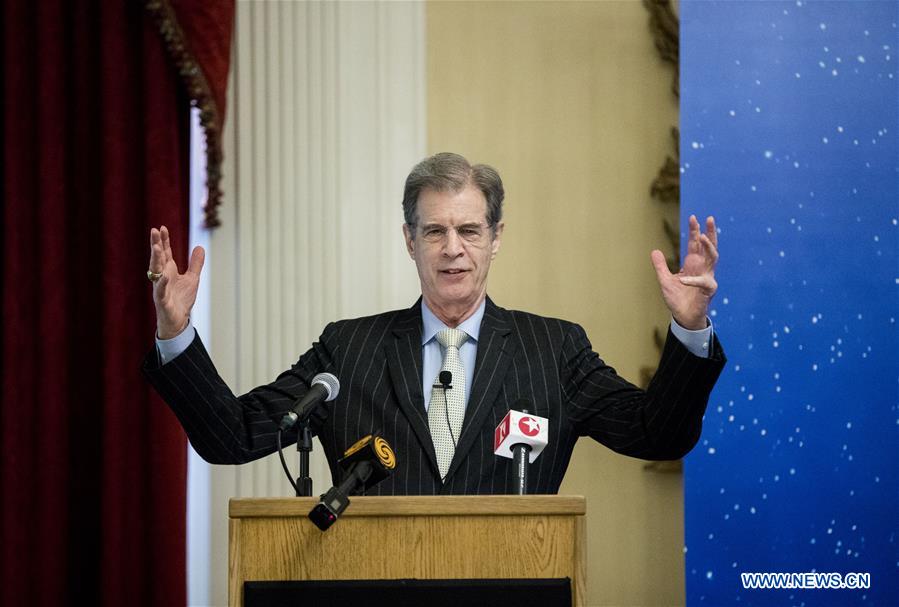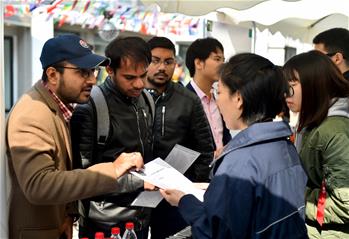
William Overholt, senior research fellow at the Mossavar-Rahmani Center for Business and Government, Harvard Kennedy School, delivers a speech during a forum on "China's Economic Development and China-U.S. Relations" at Harvard University's famed Loeb House in Cambridge of Massachusetts, the United States, Oct. 15, 2018. Joint efforts have to be made by both the United States and China to maintain the healthy and stable development of bilateral cooperative ties, which are not only mutually beneficial but crucial for a stable world order, top American and Chinese experts said here Monday. (Xinhua/Wang Ying)
William Overholt, senior research fellow at the Mossavar-Rahmani Center for Business and Government, Harvard Kennedy School, voiced a similar opinion.
While both China and the United States have valid grievances and much to negotiate, it is useful for both countries to step back and review the historic transformations and mutual benefits of bilateral collaboration that have occurred despite disagreements, said Overholt.
Overholt, who wrote "The Rise of China: How Economic Reform is Creating a New Superpower," also highlighted how both countries must collaborate in a highly complex globalized and post-industrial economy that places great value on innovation as well as ethical and environmental responsibility in the global supply chain.
"The China-U.S. relationship has contributed to some of the most significant accomplishments in the world today," he said. "If we recognize that, we can overcome the challenges facing our two countries today. We can take the past successes of the previous 40 years and bring them to the next level."
Zhang Weiwei, professor of international relations at Fudan University, believed that China and the United States can achieve enhanced cooperation and win-win results for the benefit of the people in both countries and in the world at large should the two sides end their misperceptions on issues concerning the bilateral relationship.
"China's mentality is more about win-win than zero-sum," Zhang said. "We have every opportunity now to embrace mutually assured prosperity, given that the United States and China are now the two largest countries, and there are 14,000 people traveling each day between the two countries. So we are closely connected."
China proposes to build a shared future for mankind and advocates that all countries can learn from different development models, said the professor who penned the best-selling and award-winning "China Trilogy"("The China Ripple," "The China Wave" and "The China Horizon").
The professor said China's successful reform and development proves that China has consistently adhered to a foreign policy of peaceful development, cooperation and win-win solutions.











